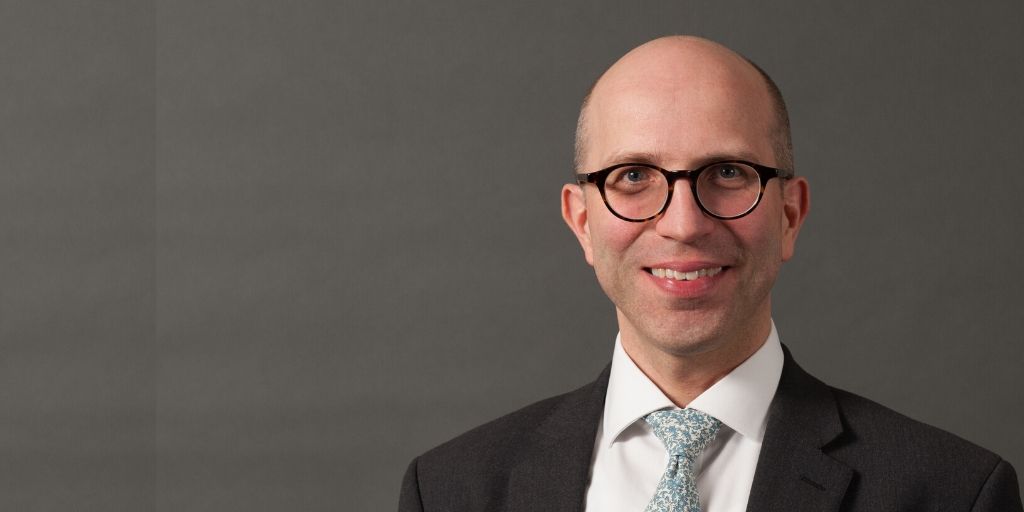Meet our Members: Matthew Andrews
In this post, Matthew Andrews, University Secretary and Registrar at the University of Gloucestershire, reflects on his role in higher education.


What is your higher education history?
I was an undergraduate at Durham University, where I was a member of St Chad’s College and studied Philosophy and Theology. This started a habit of studying, as since then I have acquired an MA in Seventeenth Century Studies (also from Durham), an MSc in Social Research from Northumbria, and a DPhil from Oxford. My doctorate is on the early decades of Durham University specifically and nineteenth century higher education more generally. With a little conversion it became a book – available now from all good discount on-line retailers.
During my MA, I worked on a very part-time basis for the Academic Registrar. Amongst the odd and wonderous tasks I was given, I was once handed a clipboard with a copy of the University timetable and asked to see if rooms were being used when they were booked. Of course, they weren’t: like every such exercise before or since, my creeping about the corridors proved that the timetable was a work of fiction.
As inexplicable as it may seem this experience gave me a taste for university administration and (since I also had no other better ideas) I started working at Durham full-time when I finished studying. After 10 more years working in admissions, recruitment, and the Graduate School at Durham a different Academic Registrar encouraged me to leave (I think it was kindly meant) and get some experience beyond the Wear and beyond the Russell Group. (Not that Durham was in the Russell Group back then, but most people seemed to think it was.) I therefore moved to Oxford Brookes as the Academic Registrar and then to Gloucestershire as Secretary and Registrar.
What does your current role and remit encompass?
I have three main departments in my directorate: Student Services, Human Resources, and the Academic Registry. In addition, I lead on all aspects of institutional governance and work closely with members of our Council. As 20% of the University Executive I also have a more general leadership role and liaise with key strategic partners. Developing a vision for the County of Gloucestershire to 2050 was one particularly interesting exercise that came from that part of my remit.
What does a typical day look like for you in your role?
Answering e-mails and attending meetings. I try not to do both at the same time.
What do you find most enjoyable and/or challenging in your role?
I most enjoy seeing the very real impact higher education can have on an individual’s life. I’m too often too far away from students (unless they’re an elected representative) so engaging in a reciprocal mentoring scheme with our ethnic minority students was a great way to understand the challenges some of our students face. It’s a good reminder about why we’re here: to transform lives for the better.
What are the current challenges for your institution?
Ensuring we balance income and expenditure, especially through student recruitment, while still growing, developing new subject areas, and delivering value for all our students and partners.
What do you think are the biggest changes ahead for higher education?
Demonstrating we really do transform lives. There’s no easy metric to demonstrate that but we must show our value beyond average earnings. Connected with that: we must secure greater trust from the general public, staff, students, and government. The positive story about higher education has too easily been buried in recent years under a heap of concerns about excessive executive salaries, snowflake students, restricted free speech, toxic working environments, coercive recruitment practices, etc, etc.
I do not believe higher education does massive disruption (we’re still waiting for the avalanche to come, for example). Rather, as a sector we prefer evolution and tend to keep old ways of doing things while adding new ways on top. I find the ingrained hierarchy of the sector frustrating and while I hope we might evolve away from that I fear it’s more likely to be formalised.
Who has inspired you and why?
Temple Chevallier. Apart from having a great name, and a beard big enough to affect ocean currents, in Durham’s early decades he held the roles of Professor of Mathematics and Astronomy, stood in as Professor of Divinity, was Reader in Hebrew, established the first British university course in engineering, examined several modern European languages, was a great ice skater, and also managed to be the Vicar of nearby Esh. He even has a crater on the moon named after him (44.9°N 51.2°E if you’d like to search for it). For 30 years he also held the role of Registrar.
There is an obvious attraction (to me, at least) about someone who was an accomplished polymath but beyond Chevallier’s ability to range so eminently across topics as diverse as Integral Hydrostatics and Ignatius of Antioch he was a practical, level-headed man with a sense of humour and an ability to get on with individuals many other people thought were impossible. I think those are good traits for any Registrar to try and emulate.
